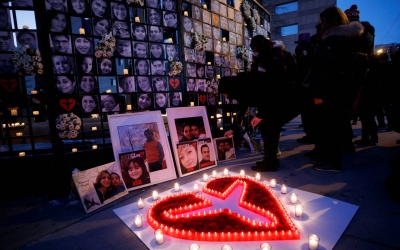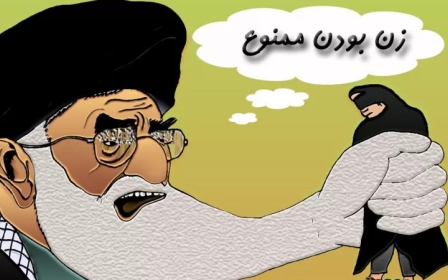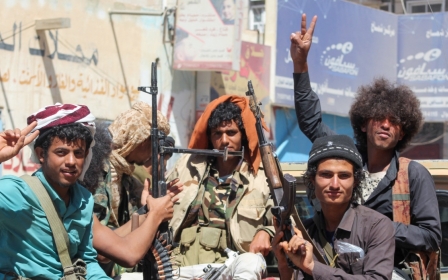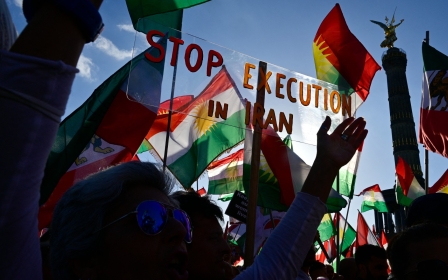Iranian press review: Workers kill themselves amid economic crisis
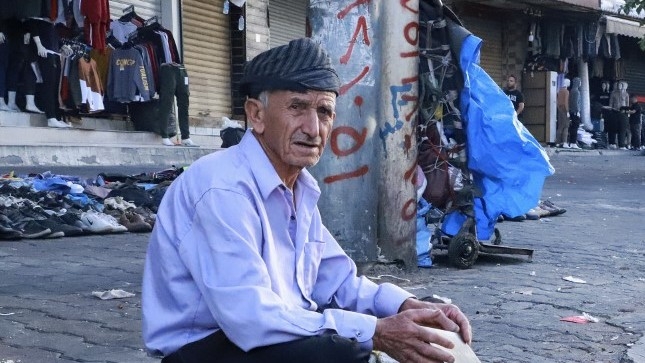
One worker takes own life every 12 days
The Etemad daily has revealed that at least 23 workers have taken their own lives* since the beginning of the current Iranian year (21 March) due to worsening economic conditions.
The daily reported that the workers were all men and working without a contract or on a short-term contract.
Ten labourers killed themselves by self-immolation to attract attention to their dire situation, six men hanged themselves, three took deadly doses of pills, and two shot themselves dead.
The workers identified by Etemad were sacked or suspended from work. In other cases, they faced threats of being laid off. The daily named three labourers who were all sacked from a petrochemical factory in the western province of Ilam.
Ilam is one the poorest provinces in the country and has the highest per capita number of suicides in Iran.
The report added that the actual number of labourer suicides due to poverty was higher than 23.
"There were other labourers who ended their own lives, but their families did not disclose the real cause of their deaths because of social and cultural taboos," it said.
Iran resumes exports to Saudi Arabia
Following years of cuts in official economic and political ties, Iran has resumed exporting goods to Saudi Arabia, ISNA news agency reported.
The news agency said that in the last Iranian year, which ended on 21 March 2022, trade between the two countries was worth less than $42,000. However, between March and November 2022, this number rose to over $14.7m.
According to the report, steel ingots, iron and marble stone were the main products exported from Iran to its regional rival.
In 2016, following an attack by Basij paramilitaries on the Saudi Arabia embassy in Tehran, Riyadh cut all ties with Iran.
Before the political brawl, Saudi-Iranian annual trade was worth about $200m.
Five rounds of talks between high-ranking diplomats from the two countries have yet to reach an entente between Tehran and Riyadh. Iraq hosted the latest negotiations.
Ukrainian plane victims still seek justice
On the third anniversary of the downing of the Ukrainian International Airline flight PS752 by Iran's Islamic Revolutionary Guard Corps (IRGC), the victims' families are still awaiting justice.
On Sunday, Mahmoud Alizadeh, one of the lawyers of the family members of the victims, told the Ilna news agency they had no access to ongoing inquiries and investigations.
"We urged them to let us know who the inspectors were, but our request was rejected, and the prosecutor banned lawyers' access to any information about the case," Alizadeh was quoted as saying.
According to Ilna's report, only five court hearings related to the case have been held over the past three years.
On 8 January 2020, Iran's IRGC air defence system shot down a Ukrainian plane and killed all 176 of its passengers. The downing happened on the same night the IRGC struck a US base in Iraq with ballistic missiles.
The significant contrast between the slow pace of the judicial process for this case and the rapid execution of protesters arrested since last September has fueled anger in Iran. Many have taken to social media to voice their anger.
"Five court sessions in three years? And when they want to execute the boys [arrested in protests], in a glimpse of an eye, the court order is ready," one Iranian wrote on Twitter.
VPNs in high demand
With increasing internet censorship in Iran, citizens' demand for virtual private network (VPN) applications - which help get secure, encrypted internet access - has risen dramatically, with surveys indicating that among the 50 most popular apps downloaded by Iranians, 40 are VPNs.
Platforms like WhatsApp and Instagram are also at the top of the list of applications downloaded by Iranian citizens, according to local media, despite a ban by the government on social media and messaging applications.
The authorities have banned Instagram and WhatsApp since mid-September, when nationwide protests began.
Outlets affiliated with the government have reported that Iranian authorities have urged the judiciary to punish unauthorised VPN trading with a prison sentence of between 90 days and a year.
Ironically, IT companies affiliated with the IRGC and the information ministry are the currently the leading VPN providers in the country.
*If you need support in the UK, then the Samaritans can be contacted at [email protected] or on 116 123. For the US, please try the National Suicide Prevention Lifeline on 1-800-273-8255. For other countries, please see befrienders.org.
*Iranian press review is a digest of press reports not independently verified as accurate by Middle East Eye.
Middle East Eye delivers independent and unrivalled coverage and analysis of the Middle East, North Africa and beyond. To learn more about republishing this content and the associated fees, please fill out this form. More about MEE can be found here.



